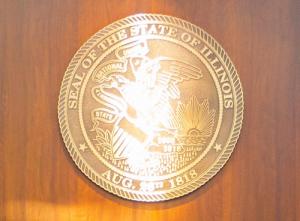Illinois Court Upholds Opt-Out Fee

The Illinois Appellate Court has sustained a March 2017 ruling by the Illinois Commerce Commission in which it had dismissed a complaint challenging the lawfulness of an electric utility’s tariff provision that authorized the utility, Commonwealth Edison Company (ComEd), to impose a charge on consumers who refuse to have a new smart meter installed at their premises.
The meters were required to be offered at no cost to the customer under a commissionendorsed Advanced Metering Infrastructure (AMI) deployment program. The proceeding before the commission started when one customer, who had declined to allow installation of a smart meter at her home, had a fee added to her ComEd bill to cover the costs of continuing to read her existing meter manually. She thereupon withheld payment of that portion of her bill and challenged the so-called “installation refusal” fee as illegal.
However, the commission had explicitly approved the tariff proposed by ComEd to address issues arising from customers who do not permit AMI on their premises. Under the tariff, the utility may apply a monthly charge of $21.53 to customers who refuse smart meters. The charge is intended to help offset costs associated with non-AMI meters, including the labor expense incurred for ongoing manual meter reading. The commission found that the $21.53 charge had been reasonably calculated and was both cost-based and likely to deter smart meter refusals. Upon appeal of the commission’s order by the complainant, the court determined that the fee had been properly designed to advance state policy favoring meter upgrades. The court also ruled that the tariff terms did not conflict with a provision in a new smart meter statute that had been enacted by the state legislature. More specifically, the court rejected claims by the consumer that ComEd’s AMI refusal charge violates the statutory provision that an electric utility “shall not require a residential … customer to take additional metering or metering capability as a condition of taking delivery services.” The court explained that the smart meter refusal fee did not constitute “additional metering.”
Rather, the court stated, the charge is merely an upgrade under the AMI program. According to the court, although ComEd’s approved AMI plan enables the utility to replace old non-AMI meters with smart meters, customers are not required to accept a smart meter. If a customer does not wish to have an advanced meter placed at their premises, the customer may opt to retain the existing metering equipment and then pay the smart meter refusal fee. The court maintained that the AMI refusal charge should not be viewed as an additional metering fee.
A more apt description of the fee, the court said, is a form of cost reimbursement for ComEd’s meter reading process for those customers who choose to keep their old meters instead of allowing installation of the upgraded meter. As to consistency of the tariff with state law, the court deemed the AMI refusal fee to comport with Illinois law, observing that because the tariff was approved by the commission, it had the force of law. The court added that once the tariff went into effect, both ComEd and its customers were bound by it. Quinshela Wade v. Illinois Commerce Commission and Commonwealth Edison Co., No. 1-17-1230, 2017 IL App (1st) 171230, Dec. 1, 2017 (Ill.App.Ct.).



